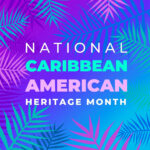The United States has been celebrating Black Music Month in June since 1979. The month of June is set aside to appreciate the contributions of African-American musicians, composers, singers, and songwriters in American culture. The month honors the history and rich African traditions that gave birth to different styles of music such as rap, hip-hop, jazz, rhythm and blues, barbershop, and swing. It is also the month to celebrate creative inspiration and appreciate the impact that African-American music has had on generations of performers and music lovers! From tales of slavery and racism and fighting for their basic human rights to finding their heritage and values in their lyrics, Black music covers a vast range of topics that have great significance for this community. Over the years, we have seen Black musicians reach great heights, not only on official music record charts but also at entertainment award ceremonies. While President Jimmy Carter designated June as Black Music Month in 1979, it wasn’t until 2000 when the presidential proclamation for the month was signed. President Barack Obama, in 2009, went on to rename the month from Black Music Month to its current name, African-American Music Appreciation Month.
History of Black Music Month
First coming into existence in 1979 as Black Music Month, this month was meant to honor and celebrate Black artists’ contributions to music on U.S. soil. President Jimmy Carter wanted people to recognize how much of an impact Black music has had, not only at home but also abroad, as people all over were adopting elements from it to express themselves. Moreover, the ’70s was fast becoming the decade in which Black music was gaining traction in signing music labels, with many business heads recognizing its commercial value.
Although President Carter had assigned June as Black Music Month, he had not signed a special presidential proclamation that would have made it official. Dyana Williams, a renowned journalist and community activist, attempted to submit a petition to hold a Black Music Month event at the White House in 1998 during President Bill Clinton’s term. But she was soon informed that an event wouldn’t be possible due to the absence of a presidential proclamation. Yet, all was not lost — Williams lobbied for legislation with the help of Congressman Chaka Fattah and, thanks to their joint effort, two years later, June was officially declared as Black Music Month.
In 2009, President Barack Obama renamed Black Music Month to African-American Music Appreciation Month. He also highlighted the importance of this month and the various genres in Black music. This includes sacred music, which was one of the earliest African-American music forms in the U.S. that highlighted gospel themes and Black Christian values. Blues and R&B relayed ideas of the homeland and racial integration. Hip-hop, rap, and rock and roll quickly became popular overseas as they appealed to youngsters all over the world.
African-American music is not just music but an integral part of American history. As we mentioned before, African-Americans musicians’ efforts gave birth to a number of newer genres of music like jazz and rap. Throughout the last century, these genres have redefined America’s cultural landscape. When people were struggling as a nation, the music brought an entire generation together. The music that emerged in the last few decades also became an important part of the Civil Rights Movement.
The beats and sounds of these genres influenced rock, soul, gospel, swing, be-bop, boogie-woogie, and other genres of music. Famous rock bands like The Rolling Stones and The Beatles credit blues and jazz as major influences of their music. In fact, a lot of Elvis Presley’s songs were originally performed by Black artists. More recently, genres such as funk, Motown, and hip-hop have also been influenced by African-American performers who have introduced new dancing and singing styles to the genres. Throughout the month of June, music lovers gather together to celebrate African-American Music Appreciation Month. They celebrate the diversity, inclusivity, and the community’s impact in shaping cultural conversations in modern America.
Black Music Month timeline
Blues is born from the racial oppression and the struggles Black people faced.
The Apollo Theater opens in the Harlem neighborhood of NYC, instantly becoming a cultural hub for African-American music.
Marian Anderson becomes the first Black singer to perform at the New York Metropolitan Opera.
Stevie Wonder becomes the first Black artist to win the Grammy Award for Album of the Year.
Michael Jackson releases “Thriller” and the album sells 66 million copies worldwide.
Childish Gambino’s ‘This is America’, lauded for the way it represents African-American realities, becomes the first rap song to win Song/Record of the Year at the Grammy Awards.
Black Music Month FAQs
Is jazz Black music?
Yes, jazz is a genre of music that has its roots in African-American culture.
When did Black music become popular?
Black music became popular in the 19th century especially with the advent of blackface minstrelsy.
How does music affect African-American culture?
Music played a central role in the African-American civil rights struggles. It also sheds light on the roles that music and musicians played in movements for equality and justice.
How To Celebrate Black Music Month
Stream your favorite African-American artists
One of the best ways to spend the month is by listening to and enjoying African-American music and giving it the hype it deserves. Explore new genres and singers, but also enjoy your old favorites. Streaming apps are also a great way to discover new artists.
Donate to a music school
Many music schools teach African-American music. If you are interested in learning more about these genres of music, you can enroll yourself in a program. And if you can’t find time for it, simply consider donating to one. There are also many African-American scholarships you can support that might be able to help someone follow their dreams in musical education.
Read up on African-American music history or watch a documentary
To truly appreciate the different layers of this music, get into the mix by reading up on the history related to it. You will not only come to know all about the different moments and people that helped shape a genre but it will also help you appreciate the music you have access to today. Also, plenty of documentaries have been made on African-American music and the lives of the musicians. Find a title that interests you the most and settle in for a movie night.
5 Facts About Black Music Month That Will Blow Your Mind
Tupac Shakur could also dance
Tupac Shakur took ballet classes as a student at the Baltimore School of Arts.
‘Billie Jean’ made history on MTV
Michael Jackson’s ‘Billie Jean’ was the first music video by a Black artist to appear on MTV.
Aretha Franklin was scared of flying
Aretha Franklin was so scared of flying that she refused to attend her own Rock and Roll Hall of Fame induction ceremony!
Kendrick Lamar is a Pulitzer Prize winner
Kendrick Lamar won the Pulitzer Prize in 2018 for his studio album “DAMN” — he’s the first pop musician to win the Pulitzer.
James Brown pioneered funk music
James Brown came up with funk music in the last few years of the 1950s — he would also go on to become one of the most sampled artists of all time.
Why We Love Black Music Month
It’s a celebration of history
There’s much history attached to many of the genres in the African-American music industry. In these genres, you will find tales of religious ecstasy as well as rebellious youth, racial oppression, love for the home, and general life topics. A lot of African-American music is also linked to important American historical events such as the Harlem Renaissance and the Civil Rights Movement. Celebrating African-American Music Appreciation Month is a way of acknowledging America’s rich history.
It’s a celebration of diversity
There’s unity in diversity. Being inclusive not only opens our hearts to one another but also broadens our horizons for new things to be explored. The American cultural landscape has been built on the contributions of the African-American population, too. By celebrating African-American Music Appreciation Month, we also celebrate the diversity of African-American music.
It’s a celebration of music
Music, just like food, is universally loved and needed. Music binds us together. Without it, life can be rather boring but, with it, everything just seems to make sense and becomes more fun, like when we tune into our favorite songs while getting our chores done. Yet we hardly pay much attention to the history behind the music. African-American Music Appreciation Month is a fine way to honor the roots of Black music.
Black Music Month dates
| Year | Date | Day |
|---|---|---|
| 2026 | June 1 | Monday |
| 2027 | June 1 | Tuesday |
| 2028 | June 1 | Thursday |
| 2029 | June 1 | Friday |
| 2030 | June 1 | Saturday |


















































































































